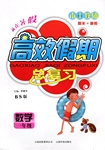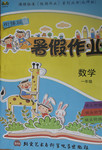题目内容
---Has anything caught your eye in today’s newspaper?
---Yes. A new eight-kilometer-long road is under ________ that links the port area with the motorway system.
A. consideration B. construction C. conservation D. constitution
B
【解析】
试题分析:考查名词辨析。句意 今天报纸有什么重大新闻吗。 一个8千米长的大桥正在建设当中,它连接港区的快车道。Consideration,考虑;construction 建设;conservation 保护;constitution 构造。Under construction 正在建设中。所以选B项。
考点 : 考查名词辨析

 暑假作业海燕出版社系列答案
暑假作业海燕出版社系列答案 本土教辅赢在暑假高效假期总复习云南科技出版社系列答案
本土教辅赢在暑假高效假期总复习云南科技出版社系列答案 暑假作业北京艺术与科学电子出版社系列答案
暑假作业北京艺术与科学电子出版社系列答案A
For many parents, raising a teenager is like fighting a long war, but years go by without any clear winner. Like a border conflict between neighboring countries, the parent-teen war is about boundaries: Where is the line between what I control and what you do?
Both sides want peace, but neither feels it has any power to stop the conflict. In part, this is because neither is willing to admit any responsibility for starting it. From the parents’ point of view, the only cause of their fight is their adolescents’ complete unreasonableness. And of course, the teens see it in exactly the same way, except oppositely.
In this article, I’ll describe three no-win situations that commonly arise between teens and parents and then suggest some ways out of the dilemma. The first no-win situation is quarrels over unimportant things. Examples include the color of the teen’s hair, the cleanliness of the bedroom, the preferred style of clothing, the child’s failure to eat a good breakfast before school, or his tendency to sleep until noon on the weekends. Second, blaming. The goal of a blaming battle is to make the other admit that his bad attitude is the reason why everything goes wrong. Third, needing to be right. It doesn’t matter what the topic is — politics, the laws of physics, or the proper way to break an egg — the point of these arguments is to prove that you are right and the other person is wrong, for both wish to be considered an authority — someone who actually knows something — and therefore to command respect. Unfortunately, as long as parents and teens continue to assume that they know more than the other, they’ll continue to fight these battles forever and never make any real progress.
【小题1】Why does the author compare the parent-teen war to a border conflict?
| A.Both can continue for generations. |
| B.Both are about where to draw the line. |
| C.Neither has any clear winner. |
| D.Neither can be put to an end. |
| A.The teens blame their parents for starting the conflict. |
| B.The teens agree with their parents on the cause of the conflict. |
| C.The teens accuse their parents of misleading them. |
| D.The teens tend to have a full understanding of their parents. |
| A.give orders to the other | B.know more than the other |
| C.gain respect from the other | D.get the other to behave properly |
| A.Causes for the parent-teen conflicts. |
| B.Examples of the parent-teen war. |
| C.Solutions for the parent-teen problems. |
| D.Future of the parent-teen relationship. |
| A.In a report. | B.In a letter. |
| C.In a novel. | D.In a textbook. |
根据短文内容,从短文后的选项中选出能填入空白处的最佳选项。选项中有两项为多余。
How to Read a Book
Books can be your best friends. 【小题1】 They can introduce you the things you may never see… But do you know how to read them in order to get the fullest enjoyment possible? The following tips should help.
Find a book. Look in the library or in one of the large bookstores. You could also ask friends if you could have a book at their book shelves. Search the selves until you find a book that looks good.Read the first page to see how it reads, and the cover text on the back of the book, if it has any. 【小题2】
Buy or borrow it and take it home. Do not start to read it until you have the time. 【小题3】 And set aside time to do nothing else but read, as it can be, at times, suspenseful(悬疑的), exciting and relaxing.
Get comfortable on the couch. Have a lamp( 灯 ) behind you, lighting the area where you are reading. Make sure the television is off and that anything else that could distract you has been attended to. 【小题4】 .
Start the book by turning the pages and really enjoy it. Do not think about anything else but what you are reading. Put yourself into the action or location in the story. Once you concentrate completely, it will be difficult to put the book down. And remember that reading is not running your eyes over a book. 【小题5】 However, if you need to read the book quickly, then you do not need to pay attention to every word.
| A.If you are busy doing other things, you should wait until you have finished them. |
| B.Get warm if you are going to be sitting still for a few hours. |
| C.If you are already concentrating, then buy it or borrow it. |
| D.Try to imagine the story in your head. |
F.You should read it actively and enjoy it completely.
G.Otherwise, you will miss it.